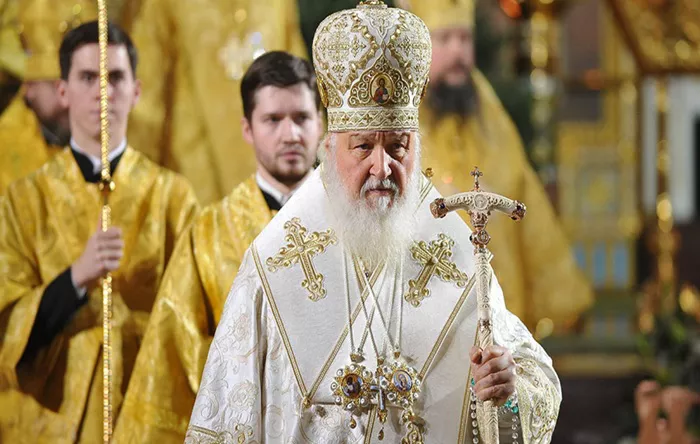Patriarch Kirill, the head of the Russian Orthodox Church, has launched an initiative to send letters to pregnant women in Russia, encouraging them to choose childbirth over abortion. This move is part of the government’s broader efforts to address Russia’s demographic challenges and promote larger families.
The letters, distributed through the St. Alexis Metropolitan of Moscow Hospital, are part of a “support package” that includes messages from local officials, financial assistance details for new mothers, and letters from regional church dioceses. The letters are being sent to pregnant women at state-run clinics in 16 Russian regions, excluding Moscow, according to Natalia Moskvitina, one of the project’s organizers.
Patriarch Kirill’s letter, which is addressed to women at various stages of pregnancy, emphasizes the sanctity of life. “You are now experiencing a special time when a great miracle of God is taking place: a new person is being prepared to come into the world,” the letter states. It continues with a message of comfort, quoting Jesus Christ: “Let not your heart be troubled, neither let it be afraid.”
This initiative is part of a larger campaign called “Hello, Mama!” that aims to reduce the number of abortions in Russia. Moskvitina reported that the project successfully reduced abortions by 42% in Mordovia, a region where it was piloted in 2022.
Georgia Faces Political Crisis Amid Protests Against EU Accession Delays
In Georgia, thousands of protesters clashed with riot police on Monday in the capital, Tbilisi, as the political crisis deepens over the government’s suspension of European Union (EU) accession talks. The unrest has sparked five consecutive nights of demonstrations, with opposition lawmakers boycotting parliament and accusing the ruling Georgian Dream party of betraying the country’s long-standing pro-EU stance.
The protests erupted following the government’s announcement that it would shelve EU membership discussions after disputed parliamentary elections on October 26. Critics argue that the Georgian Dream party’s decision to halt the EU talks signals a shift towards Russia and away from the West.
Protesters, waving Georgian and EU flags, gathered outside the parliament building in Tbilisi and in Batumi, demanding the resignation of the government and the annulment of the election results. Police used tear gas and water cannons to disperse the crowds, while some demonstrators threw fireworks and other projectiles at the authorities.
Prime Minister Irakli Kobakhidze rejected calls for negotiation with the opposition, claiming that the protests were “funded from abroad” and vowing that “there will be no revolution in Georgia.” He also accused Western nations of failing to condemn what he described as “organized violence” by the protesters.
Opposition leaders, including pro-EU President Salome Zurabishvili, have strongly criticized the government’s crackdown. Zurabishvili, who has supported the protests, stated that those detained by the police had been subjected to physical abuse, with many showing signs of head and facial injuries.
Since the protests began, dozens of people, including protesters, police officers, and journalists, have been injured. Authorities have detained over 200 people, and tensions remain high as the demonstrations show no sign of subsiding.
The government’s decision to delay EU talks has sparked outrage in Georgia, a country where public opinion strongly favors EU membership. Opinion polls indicate that around 80% of Georgians support joining the EU, a stance that many protesters feel is being undermined by the ruling party.
Prime Minister Kobakhidze insisted that EU membership remains the government’s “top priority” despite the suspension of talks. However, demonstrators are skeptical, accusing the government of steering the country closer to Russia, a claim the ruling party denies.
Kremlin spokesperson Dmitry Peskov defended Georgia’s actions, calling the crackdown necessary to “stabilize” the situation. He drew comparisons to the 2014 Maidan protests in Ukraine, which led to the ousting of a pro-Russian president and set the stage for Ukraine’s closer ties with the EU.
As Georgia’s political crisis continues, the future of the country’s EU ambitions remains uncertain.
Related Topics:


